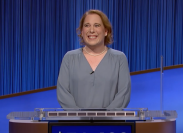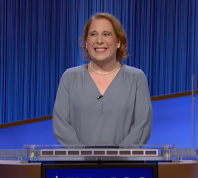Study Finds Online Daters Pursue People Way Out of Their League
Using quantity to get better quality doesn't make mathematical sense.

Bad news: if you're wondering why you're striking out lately on Tinder, new research suggests it might be because you're trying unsuccessfully to punch above your weight.
In a new study published in the journal Science Advances, Elizabeth Bruch, associate professor of complex systems and sociology at the University of Michigan, and her colleagues surveyed 187,000 heterosexual users on a "popular, free online dating service" (which could not be named due to an NDA) in New York, Chicago, Seattle, and Boston, and found that both men and women tend to pursue partners who are, on average, about 25 percent more desirable than they are.
The consequences of this aspirational approach to the online dating market is severe, given that "the probability of receiving a response to an advance drops markedly with increasing difference in desirability between the pursuer and the pursued," the paper reads. "Men are more than twice as likely to receive a reply from women less desirable than themselves than from more desirable ones, and for messages sent to more desirable women, the reply rate never rises above 21%. Yet, the vast majority of men send messages to women who are more desirable than themselves, on average. Messaging potential partners who are more desirable than oneself is not just an occasional act of wishful thinking; it is the norm."
Now, "desirability" is not as easy to scientifically quantify as weight or height, but the researchers employed the same algorithm that Google's search engine uses and analyzed how many messages a user receives as way of giving them a desirability score. But the researchers also argue that, by and large, people know when they're messaging someone out of their league, they just do it anyway because not getting a response from someone super attractive on an online dating site hurts a lot less than getting turned down in real life.
"The costs of being aspirational are so low in this context—in contrast to pursuing partners in person, where the rejection really stings," Eli Finkel, a professor of psychology and management at Northwestern University who was not involved in this study, told CNN. "In online dating, you can't tell how much attention anybody's getting, which means that too many of us are pursuing too few potential partners—those who [look] appealing in their photographs and profile. This is one of the concerns I've long had about online dating."
Indeed, this is one of the reasons game theory cannot really be applied to online dating, given that it necessitates a finite amount of options. In real-world dating, you might see 10 women at a bar, and analyze which one you have the best chances with given her desirability and the amount of men who are already trying to get her number, and thereby limit yourself to the potential match with whom you'd have the best success. But, in online dating, it's impossible to know how much competition you have (though this is a clinical feature that dating sites may want to add in the future). According to the paper, you'd be surprised at how many messages some users receive. The most popular individual in the study was a 30-year-old woman living in New York, who received 1,504 messages during the period of observation, equivalent to one message every 30 min, day and night, for the entire month.
One of my male friends, who is in his early 20s, said that he would never pursue a woman in a real-life setting, because, "in a bar, you can only hit on one women at a time, whereas, online, I can hit on several woman simultaneously." While this sounds like a good idea in theory, the paper confirms that, in practice, this is not the best mathematical strategy for getting a date.
After all, previous research on mate value has found that, when it comes to long-term relationships at least, the most successful pairings occur between people who have a similar desirability score. By constantly punching above their weight, online dating users may be dooming themselves to an endless cycle of unanswered messages and first dates where the other person is not that impressed. Perhaps that's why a recent report found that the success rate on Tinder for casual sex is actually surprisingly low.
Some of the other depressing findings of the study was that female desirability drips with age, whereas male desirability increases. Specifically, the "average woman's desirability drops from the time she is 18 until she is 60," whereas, for men, "desirability peaks around 50 and then declines." It also found that "desirability is associated with education most strongly for men, for whom more education is always more desirable," but, for women, "an undergraduate degree is most desirable, and a postgraduate education is associated with decreased desirability among women." So much for all that fanfare surrounding that survey that said men are increasingly more interested in women with high-powered jobs.
While the study found that users tend to put more effort into their messages when pursuing a more desirable partner, typically composing longer and more thoughtful replies, the outcome of this is almost negligible. Interestingly enough, the study did find that "men experience slightly lower reply rates when they write more positively worded messages," which "may offer a hint about why men tend to write somewhat less positive messages to more desirable partners."
If you're feeling demoralized by all of this, it's worth noting that there is some recent research to indicate that human beings have made some positive progress as a culture when it comes to dating. One recent study found that women are no longer interested in flashy men. Several studies have noted that emotional intelligence is beneficial for men both in relationships and casual flings. And new research indicates that, as a woman, your days of "playing-hard-to-get" should be numbered. And if you're looking to boost your success rate in the world of online dating, check out how I Hired an Online Dating Coach and This Is What I Learned.
To discover more amazing secrets about living your best life, click here to sign up for our FREE daily newsletter!





















